During her many years of working with students from 13 to 18 years old, Ms. Ha Minh - founder of the Mentors14 personal development mentoring program - has had the opportunity to accompany and support many young people from both public and international schools. From the perspective of a "mentor" - a companion mentor instead of an evaluator, Ms. Ha Minh shares her observations and concerns about the disconnect between parents and children, along with solutions to create a solid journey of maturity for the younger generation.
- How do you evaluate the relationship between parents and children during puberty in today's society?
I think one of the biggest conflicts today is not “generational differences” but “differences in how we view our children”. Many parents love their children with silent sacrifices, but they show it through expectations: good grades, good behavior, no trouble. Meanwhile, teenagers need to be listened to and recognized as independent individuals.
Many young people confided in me that they did not dare to tell their parents the truth because they were afraid of being scolded or making them sad. From there, a distance began to form. The more intelligent and sensitive a child was, the easier it was to hide their sadness. And it was this silence that made adults mistakenly believe that everything was fine, before unpredictable problems arose.

- What are the common problems that students in public schools and international schools encounter, madam?
The problems faced by the two groups of students are different, not in the nature of the problem but in the way they are expressed and the way they are treated.
Public school students are often under pressure from exams, expectations of grades and traditional career orientation. Meanwhile, students studying in international environments face identity crises, freedom but also confusion, especially when they are exposed to international values early without a solid foundation from within.
I have met students from international schools who have excellent academic records, but are empty about their life direction. And conversely, there are students in public schools who have a lot of potential but lack guidance, so they do not know where to start.
- According to you, what is the important thing that can help children overcome this "temperamental, chaotic" stage in a healthy way, limiting conflicts and deviant thoughts and actions?
I don't think students need extra supervisors or managers, because they already have parents, teachers, discipline and assessment systems. What they need more is a companion they can trust.
What you’re missing is someone who can listen without judgment, ask the right questions, and guide you to find the answers for yourself. Someone who won’t “teach” you how to live, but will create a safe space for you to “want” to live better every day. A personal mentor can help you with that.
- Can you share more specifically about the personal consulting solution - the job that you are pursuing?
I don’t have a set formula, because each student is different . However, I always start by building trust. When a student trusts me enough to share their truth – even if it’s just a small story – that’s when the mentoring journey really begins.
We work with students in a clear cycle: Self -discovery , shaping life values, designing learning goals and comprehensive development (from academics, skills, to emotions and career orientation). Not only giving advice, we accompany students through each transitional milestone - from grade 9 to grade 10, or from the stage of preparing study abroad documents until receiving the admission letter.
- How do personal development mentoring programs, such as Mentors14, operate and reach young people, madam?
Our program Mentors14 is not a normal test preparation center or study abroad consulting. We build a 1:1 Mentoring personal development consulting ecosystem with the goal of supporting students to develop themselves sustainably - from inner strength to capacity.
Through long-term personalized programs, Mentors14 provides mentors - suitable guides for each student, helping them have a clear development path and closely accompany them for 1 - 3 years, not just short-term intervention. Each member of the system is not only an expert, but also a great friend - someone "close enough" to listen and "far enough" to guide and orient.
We believe that for a child to “shine”, what is needed most is not the spotlight, but understanding and a firm hand behind them - silent but always present.
Source: https://vietnamnet.vn/su-im-lang-cua-tre-va-lam-tuong-cua-cha-me-2399389.html



![[Photo] Many streets in Hanoi were flooded due to the effects of storm Bualoi](https://vphoto.vietnam.vn/thumb/1200x675/vietnam/resource/IMAGE/2025/9/29/18b658aa0fa2495c927ade4bbe0096df)
![[Photo] National Assembly Chairman Tran Thanh Man chairs the 8th Conference of full-time National Assembly deputies](https://vphoto.vietnam.vn/thumb/1200x675/vietnam/resource/IMAGE/2025/9/29/2c21459bc38d44ffaacd679ab9a0477c)
![[Photo] General Secretary To Lam attends the ceremony to celebrate the 80th anniversary of the post and telecommunications sector and the 66th anniversary of the science and technology sector.](https://vphoto.vietnam.vn/thumb/1200x675/vietnam/resource/IMAGE/2025/9/29/8e86b39b8fe44121a2b14a031f4cef46)
![[Photo] General Secretary To Lam receives US Ambassador to Vietnam Marc Knapper](https://vphoto.vietnam.vn/thumb/1200x675/vietnam/resource/IMAGE/2025/9/29/c8fd0761aa184da7814aee57d87c49b3)

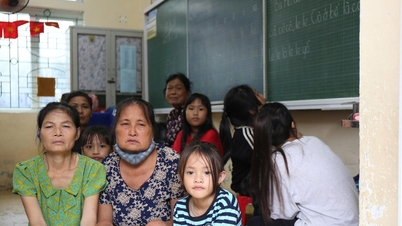
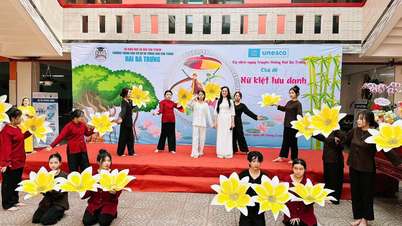



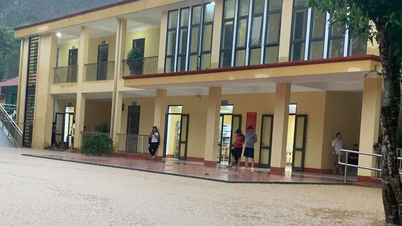



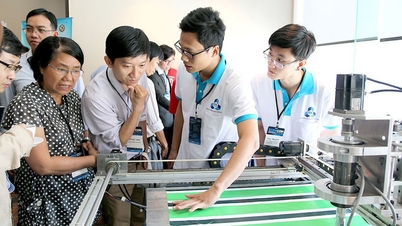








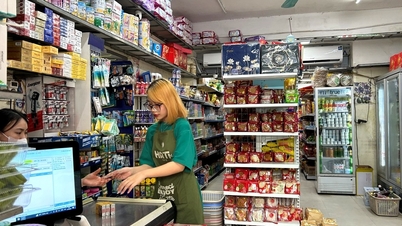












































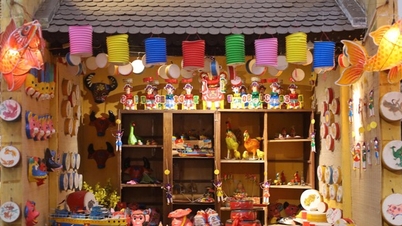





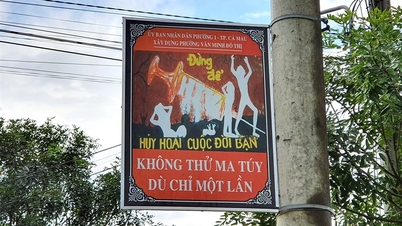

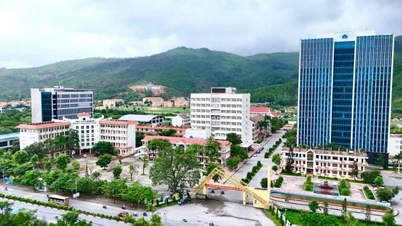















Comment (0)